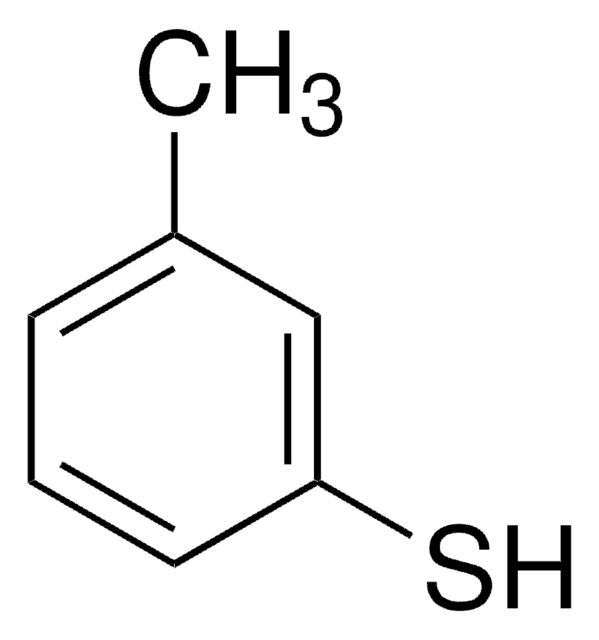T35920
p-Toluenesulfonic acid monohydrate
ReagentPlus®, ≥98%
Synonym(s):
4-Methylbenzenesulfonic acid monohydrate, 4-Toluenesulfonic acid monohydrate, PTSA monohydrate, TsOH monohydrate
About This Item
Recommended Products
vapor density
5.9 (vs air)
Quality Level
product line
ReagentPlus®
Assay
≥98%
mp
103-106 °C (lit.)
SMILES string
[H]O[H].Cc1ccc(cc1)S(O)(=O)=O
InChI
1S/C7H8O3S.H2O/c1-6-2-4-7(5-3-6)11(8,9)10;/h2-5H,1H3,(H,8,9,10);1H2
InChI key
KJIFKLIQANRMOU-UHFFFAOYSA-N
Looking for similar products? Visit Product Comparison Guide
Related Categories
Application
Legal Information
Signal Word
Danger
Hazard Statements
Precautionary Statements
Hazard Classifications
Eye Dam. 1 - Met. Corr. 1 - Skin Corr. 1C - STOT SE 3
Target Organs
Respiratory system
Storage Class Code
8A - Combustible corrosive hazardous materials
WGK
WGK 1
Flash Point(F)
Not applicable
Flash Point(C)
Not applicable
Personal Protective Equipment
Choose from one of the most recent versions:
Already Own This Product?
Find documentation for the products that you have recently purchased in the Document Library.
Our team of scientists has experience in all areas of research including Life Science, Material Science, Chemical Synthesis, Chromatography, Analytical and many others.
Contact Technical Service








